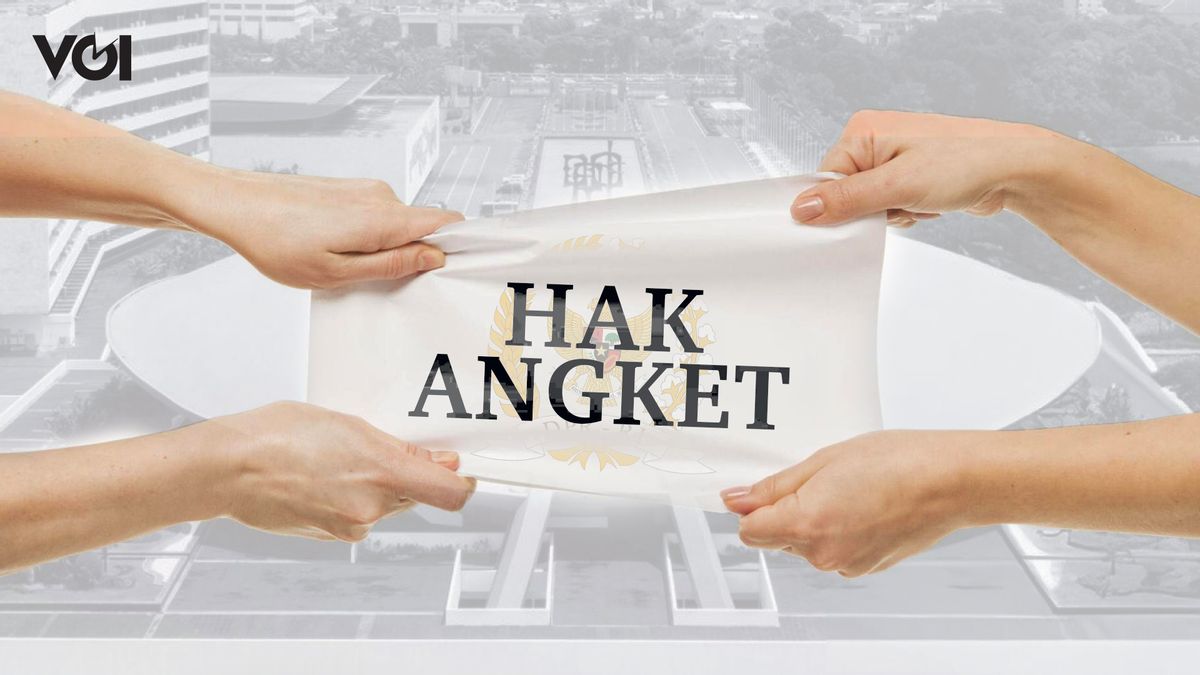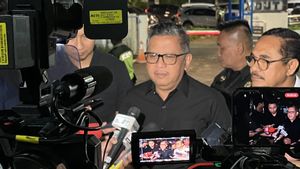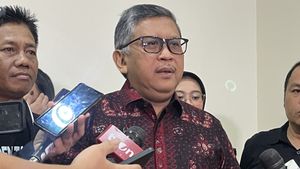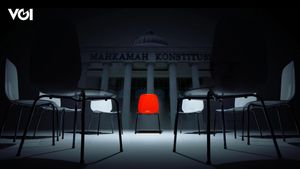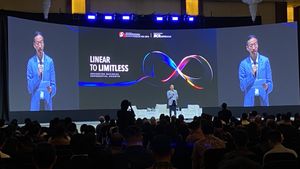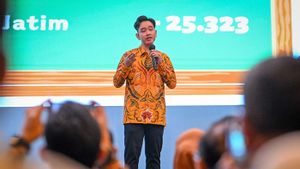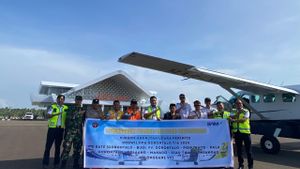The discourse on the use of the Right of Questionnaires to investigate allegations of chaos in the 2024 General Election began to emerge during the Plenary Meeting of the Indonesian House of Representatives, Tuesday, March 5. At least, there have been three members of the House of Representatives who have spoken out loudly regarding the use of the Right of Question.
The three members of the DPR are Aus Hidayat Nur (PKS Faction), Luluk Nur Hamidah (PKB Faction) and Aria Bima (PDIP Faction). Unfortunately, the voices of the three politicians at the DPR Plenary Meeting were not balanced by the official attitudes of their respective factions, and other factions.
This raises the question in the public sphere whether the discourse on the 2024 Election Questionnaire is indeed a form of supervision from the DPR or only a means of negotiation, aka political bargaining.
Universitas Brawijaya political communication expert, Verdy Firmantoro, assessed that the discourse on the 2024 Election Questionnaire had not yet rolled fast because of the motive behind it which was still unfinished. He suspects that there is still a conflict between purely surveillance or political tendencies.
"That's why, the potential for this right of inquiry is still half-hearted because the commitment of each political party is not yet full. This right of inquiry is to be used as an effort to monitor or instead to have political consequences," he said, Monday, March 11.
According to him, this is actually a test of the commitment of political parties to the Indonesian people, whether they are fighting for value or even more politically motivated in rolling out the Right of Questionnaires. Because, if the motive for rolling is politics, then the right of inquiry can certainly wither in the middle of the road.
"Moreover, coupled with the strengthening of the dominance of government coalitions and coalitions towards a new government that is getting bigger, it reduces the self-confidence of parties who want to have vocal votes as an opposition," added Verdy.
VOIR éGALEMENT:
In addition, if the political motive is the basis for the Right of Angkat, then it also has the potential to harm legislative candidates who have the opportunity to qualify for parliament again in 2024-2029. The reason is, if the right of inquiry is aimed at rejecting the election results, then what is questioned is not only the presidential election, but also the legislative election.
4 Political Parties Still Thinking About Being An Opposition?
Regarding the PDIP faction which has yet to issue an official stance on the discourse on the Right of Question, Verdy believes that the party led by Megawati Soekarnoputri is still in a position to seek safety, wait and see. "Maybe we are still trying to strengthen both politically and legally while checking which parties have the potential to fully support," he added.
Likewise with NasDem, PKS, PKB and PPP. Verdy assessed that, of the four political parties, only PKS has DNA as an opportunity proven in the ten years of Joko Widodo's administration. Meanwhile, NasDem and PKB have the potential to join the next government coalition with significant votes and seats.
As for PPP, the closeness of Acting Chairpersons of Mardiono and Sandiaga Uno with a circle of power cannot be ignored. This raises the question of whether PPP is ready to be out of power as the opposition to the next government.
Different opinions were put forward by the Executive Director of the Indonesia Political Opinion (IPO) Dedi Kurnia Syah. He saw that the target of the recent Questionnaire Rights was President Joko Widodo, not the result of the 2024 General Election.
Karena itu, dia menilai wacana penguliran Hak Anggat akan mendapatkan perlawan yang kuat secara politik. That's why lobbies untuk menghalangi sangat kuat dan bukan tidak mungkin PDIP bisa kalah bersaing berpenuhan dan kekuatan, tuturnya.
Dedi gave an example, PDIP could be faced with the threat of the Harun Masiku case which has not yet been caught. In addition, the absence of Puan Maharani at the Plenary Meeting, although she reasoned that attending a session in Paris, could raise the perception that Megawati's daughter deliberately refused the right to inquiry secretly.
Moreover, before the election, Puan had often defended Jokowi, even strongly reprimanded PDIP cadres who criticized government policies. In this position, Puan is very likely to be the door of diplomacy between the interests of the government and the PDIP.
That's why Puan doesn't really prioritize the Plenary Meeting. It could be that she deliberately refused the right of inquiry secretly. Puan's steps are clearly an anomaly, overseas visits are certainly not a priority agenda, given that the domestic political situation is heating up," explained Dedi.
Researcher of the Indonesian Parliamentary Concerned Community Forum (Formappi), Lucius Karus, called PDIP the key in rolling out the 2024 Election Questionnaire Rights. The reason is, so far, the political parties supporting Anies-Muhaimin emphasized that the continuity of the right to inquiry will depend heavily on the seriousness of the PDIP as the first party to initiate it.
"If we consider Arya Bima's statement (at the Plenary Meeting) as the PDIP's attitude, it seems that PDIP itself has not chosen the right of inquiry anymore as a political step intended to uncover election fraud. He is not specific in encouraging the use of the right to inquiry even though he still reminds the need for the DPR to do something to ensure improvements in the implementation of elections in the future," he explained.
"As the main party carrying Ganjar, plus the passionate spirit shown by a number of PDIP politicians in the media in pushing for this Questionnaire Right, his feelings at the Plenary Meeting became an anticlimactic. If the PDIP is not all, it means that we must bury the dream of uncovering election fraud using the DPR's exclusive rights, namely the Right of Questionnaires," added Lucius.
How To Be Smooth PDIP
A political observer from BRIN, Aisah Putri Budiatri also stated that if PDIP and other parties seriously want to apply for the right of inquiry, then it should be submitted as soon as possible when the opportunity for trial exists.
In addition, in a short time, the initiators of the Right of Angket need to prepare themselves to meet various submission requirements including preparing the materials to be investigated, as well as building support within parliament in order to get approval at the Plenary Meeting.
The process is certainly not easy in the midst of the DPR's less than a year's tenure. Members of the council are busy guarding the votes from their respective legislative elections, and with a note that parties that are also the government coalition, which when most likely rejects the idea of inquiry, have a large proportion in the DPR, "said Putri.
He considered that if the right of inquiry was actually carried out and there was a serious investigation with the basics of material for a strong investigation, then this could be a place that effectively tests the alleged election fraud posed by various parties.
"However, the right of inquiry can only be effective if there is seriousness from all parties, especially within the parliament and then in the government. This seriousness is the key because of the short remaining working time. For example, if it turns out that the initiators are not solid initiating support within parliament, it could be that the trial will be delayed or even does not meet the requirements for the plenary session quorum, then the right of inquiry will fail before it starts," he explained.
He emphasized that the Right of Questionnaire could be an alternative step to uncover alleged election fraud. Especially, because of the public's anger at the alleged massive election fraud, and on the other hand, there are public doubts about the effectiveness of the supervision by Bawaslu.
"Meanwhile, the Constitutional Court has stated that the issue of election TSM fraud is not its authority. Therefore, the Right of Questionnaire is considered a strategic important step to uncover allegations of election fraud," said Putri.
On the other hand, the Secretary General of the PDIP DPP, Hasto Kristiyanto, dismissed the assumption that his party was not serious in discussing the 2024 Election Questionnaire Rights. He revealed that the revolving of the right to inquiry requires steps that must be considered and carefully designed.
Therefore, PDIP continues to conduct civil society discussions and professors in line with efforts to build people's awareness. "So this is everything prepared. Prof. Mahfud has said his academic paper is being refined," he said.
A similar statement was also made by the Chairperson of the PPP Party Advisory Council, Muhammad Romahurmuziy, who said that his party was still prioritizing guarding the vote results in the 2024 Legislative Election. Because, with the votes that are not yet wide apart from the parliamentary threshold, PPP votes are still at risk of changing.
"The current PPP's official stance is quite clear, we are still prioritizing guarding the results of the legislative elections. For the discourse on rolling out the right of inquiry, we will decide after the KPU determines the results of the 2024 presidential and legislative elections on March 20," said Romy.
The English, Chinese, Japanese, Arabic, and French versions are automatically generated by the AI. So there may still be inaccuracies in translating, please always see Indonesian as our main language. (system supported by DigitalSiber.id)
